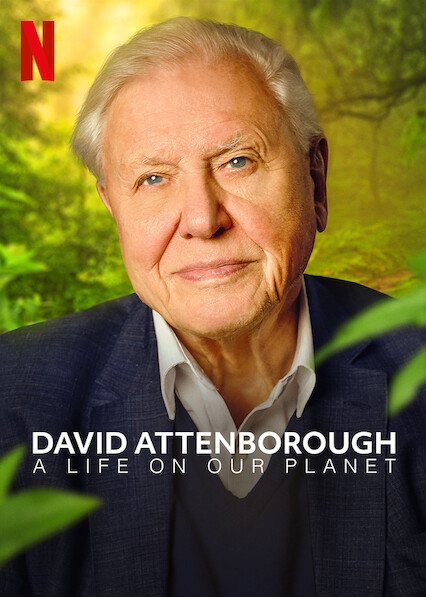
How can we help the planet? Natural historian Sir David Attenborough shares his message on how we can make long-lasting change and reduce our impact by ensuring everything we do, we can do forever.
Sir David Attenborough shares his message on how we can make long-lasting change
In the coming decades, humankind must act to achieve a sustainable existence on Earth. But how do we go about it? Sir David Attenborough’s latest series, Our Planet, not only showcases the raw beauty of nature, but also confronts viewers with the devastating role they play in its demise. While so many other wildlife documentaries leave you feeling in awe and inspired, Our Planet also stirs up feelings of guilt.
“Biodiversity equals stability and stability is what we need most of all.” — Attenborough
Sir David Attenborough’s new eight-part Netflix documentary pulls no punches and repeatedly reminds viewers that the stunning footage they’re witnessing is being jeopardised by human activity.
From a time-lapse showing Borneo’s jungle transforming into oil-palm monocultures, to the story of an African elephant herd scouring the desert for increasingly scarce water sources – Attenborough shows what we must preserve to ensure that people and nature thrive.
But how did it come to this?
In a separate video detailing specific instructions on how to save our planet, Attenborough explains that we must first start by understanding how we got to this point.
“Twenty thousand years ago, humankind consisted of less than a million hunter-gatherers across the globe. We lived within the resources on offer, in balance with nature.
“But it wasn’t an easy life. Nature determined our survival. We used our unique minds to challenge that reality. Our population boomed, as did our demands. Every time a new problem arose, we solved it, altering Earth’s entire surface in the process,” he says.
“And now, we have changed the world so profoundly that scientists have decided Earth has entered a new phase of its existence. Welcome to the Athropocene, the age of humans. The tables have turned. We now determine nature’s survival.”
According to veteran naturalist and presenter, we have already cleared three trillion trees, cultivated half of all fertile land, and we now fish across most of the ocean. The population of wild animals has been slashed by 60% in the last 50 years, and we’ve replaced them with our domesticated animals and plants.
“Without biodiversity, the world as we know it doesn’t work. A less wild world is less able to provide for our needs, less able to maintain dependable weather and seasons, and less able to absorb our impact,” Attenborough says.
“Biodiversity equals stability and stability is what we need most of all.”
Source: CEOMagazine
How do we reverse the situation?
Among the bleak warnings, Attenborough also points to success stories in which conservation measures have helped a range of species bounce back and thrive. Something that’s having an even greater impact is the slowing human population growth.
“The main reason our population is still rising is because people are living longer. If this continues, our population may finally stop growing by the turn of the century.”
By investing in education and women’s rights, and raising people out of poverty, Attenborough believes we could regain our balance and bring about ‘peak human’ even sooner.
For the largest gains, he suggests we concentrate our efforts on four goals:
- An energy revolution. Phasing out fossil fuels and replacing them with renewables will slow the warming of the planet and the acidification of the ocean and create clean air for all of us.
- A food revolution: Upgrading to efficient food production and reducing our consumption of meat. Less space will be needed to provide for ourselves, which will leave more for grasslands, reduce deforestation and our demand for fresh water, and feed more people with healthier, more affordable food.
- Manage the ocean: A global network of no-fish zones and a treaty on the use of international waters would restore the health of the ocean so it produces more fish for us all.
- Re-wild the world: Working to keep hold of the wild populations we still have, encouraging nature – in the ocean, on land that is no longer needed and even in our cities.
There is one overriding principle: Nature is our biggest ally and our greatest inspiration.
We just have to do what nature has always done. In this world a species can only thrive when everything around it thrives too.
Attenborough believes that only by making these changes can the Anthropocene (the Age of the Humans) be truly underway.
“How do we create a future in which both people and nature can thrive?” he asks. “We open our eyes to this moment in history, think on a planetary scale, embrace the challenge we face, and do something we humans are very good at – change the world.”
Check out Attenborough’s full “How to Save Our Planet” video here.
Source: CEOMagazine

EXPLORE OUR PLANET: OFFICIAL WEBSITE
This is a critical moment for our planet. We have changed it so much we have brought on a new geological age - the Anthropocene. The age of humans. For the first time in our history, the global connections that all living things rely upon are breaking. But if we act quickly, we have the knowledge and the solutions to make our planet thrive again.